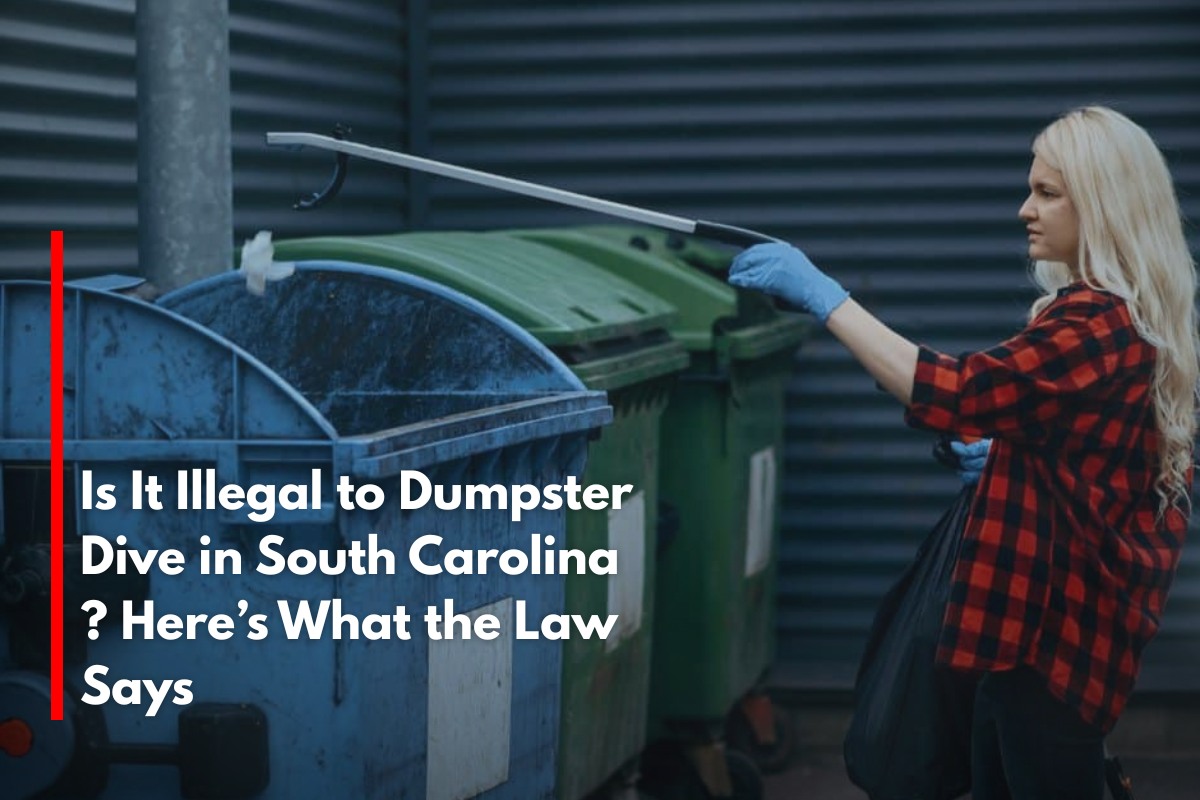Dumpster diving, the act of searching through trash receptacles to find usable or valuable discarded items, has grown as an eco-friendly and budget-conscious activity. However, questions about its legality often arise, especially since laws and regulations vary by location.
In South Carolina, the legal landscape around dumpster diving is relatively lenient but nuanced. This article explores the key legal considerations dumpster divers should know about in South Carolina.
Dumpster Diving and the Law: The Basics
In general, dumpster diving is not outright illegal in South Carolina. The crucial factor is where the dumpster is located. By law, once someone discards their belongings, ownership usually transfers, and the items become abandoned property. Therefore, items placed in dumpsters on public property or accessible areas can often be taken without constituting theft.
However, many dumpsters are situated on private property—such as behind stores, restaurants, or office buildings. In these cases, dumpster diving may be restricted due to trespassing laws, as entering private property without permission is illegal. Trespassing charges may be brought against divers who ignore “No Trespassing” signs or access locked or fenced-in areas.
Private Property and Trespassing Concerns
The primary legal challenge dumpster divers face in South Carolina is trespassing. Because most dumpsters belong to a business or are placed on private land, entering the property without consent to dive can violate trespassing statutes.
If a dumpster is behind locked gates, fenced off, or clearly marked with “No Trespassing” notices, entering the area can lead to legal consequences. These might range from warnings or fines to arrest depending on the situation and local enforcement policies.
Therefore, many experienced divers recommend either:
Respecting Local Ordinances and Regulations
While South Carolina state law generally does not prohibit dumpster diving, local city or county ordinances may impose additional restrictions. Some municipalities might have ordinances against scavenging or require permits for certain activities, so divers should verify rules specific to their area.
Furthermore, causing a disturbance, creating litter, or damaging property during diving could lead to charges such as disorderly conduct or vandalism.
Safety and Ethical Practices
Besides legal compliance, safe and respectful dumpster diving is essential:
Dumpster diving in South Carolina is generally legal when done on public property or with permission on private property. However, trespassing onto private land to access dumpsters can lead to legal trouble. Divers should respect “No Trespassing” signs, avoid locked or fenced areas, and follow local ordinances.
For those interested in dumpster diving, communication with property owners and adhering to ethical practices can help avoid conflict. Ultimately, understanding the laws and being considerate ensures that this sustainable and resourceful activity remains safe and lawful in South Carolina.
This guide highlights that dumpster diving is legal in South Carolina under certain conditions, with trespassing as the main legal risk, and emphasizes respecting property rights and following local regulations for safe and lawful dumpster diving.
Sources
(https://www.rolloffdumpsterdirect.com/dumpster-diving-illegal/)
(https://freelawchat.ai/property-law/2071980/dumpster-diving-legal-considerations.html)
(https://extrachill.com/a-guide-to-dumpster-diving-in-south-carolina)
(https://www.reddit.com/r/DumpsterDiving/comments/7uap53/asked_local_sc_pd_the_legal_status_of_dumpster/)
(https://www.legalmatch.com/law-library/article/is-dumpster-diving-illegal.html)











